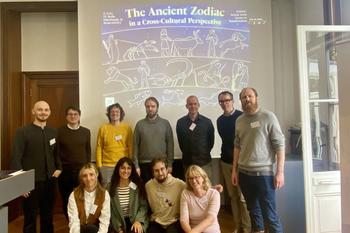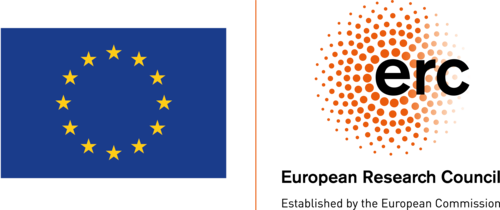ZODIAC Ancient Astral Science in Transformation
History of Knowledge in the Ancient World
12.09.2025
The introduction of the zodiac was a turning point in the history of science and culture. How could horoscopic astrology and mathematical astronomy take root across the ancient world? The project ZODIAC (ERC Adv. Grant No. 885478, 2021-2027) is developing an account of this remarkable phenomenon of cross-cultural knowledge transfer. In order to achieve this it carries out a comprehensive study of cross-cultural transformations in textual and iconograpic sources to reveal strategies that foster acceptance in new contexts.
Who we are
ZODIAC brings together an enthusiastic interdisciplinary team: Principal Investigator Mathieu Ossendrijver, Professor of History of Science in the Ancient Near East (FU Berlin); Assyriologist Marvin Schreiber, a postdoctoral researcher specializing in Late Babylonian astrology; classical philologist and papyrologist Michael Zellmann-Rohrer, who focuses on Greco-Roman astrology; Egyptologist and digital humanist Christian Casey, also a postdoctoral researcher; PhD fellow Alessia Pilloni, who investigates inner-Babylonian knowledge transfer in the astral sciences; and PhD fellow Thomas Peeters, who explores the accuracy of ancient astronomical computations.
How we work
We conduct our research as a strongly collaborative team based in the Institute for History of Knowledge in the Ancient World. We investigate primary sources (cuneiform tablets, papyri, ostraca, iconographic sources) in collections all over the world, have weekly research meetings, organize workshops, and invite scholars to spend time with us and contribute to the project. A major research tool is the digital cross-cultural glossary ZODIAC (zodiac.fly.dev) developed by Christian Casey in collaboration with the team. The team is preparing an exhibition on the ancient zodiac in the Neues Museum in collaboration with the Vorderasiatisches Museum (opening planned for April 2026).
Which results are most important
The team has made important discoveries in Babylonian, Egyptian, and Greco-Roman astrology and astronomy. For instance concerning the connections between planets and human organs (a doctrine known as planetary melothesia), various astrological doctrines that are applied in horoscopes from Babylonia, Egypt, and the Greco-Roman world, the Babylonian origin of some of these doctrines, and Babylonian methods for computing planetary positions.
What remains to be examined
The team continues to study the ancient sources (texts, tables, images, artefacts) and their diverse contexts (e.g. libraries, funerary contexts, temples) with an increasing focus on the cross-cultural transformations and transfer of knowledge. The team will synthesize its findings in an account of the transfer of zodiac-related artefacts, theories, and doctrines across the ancient world.






